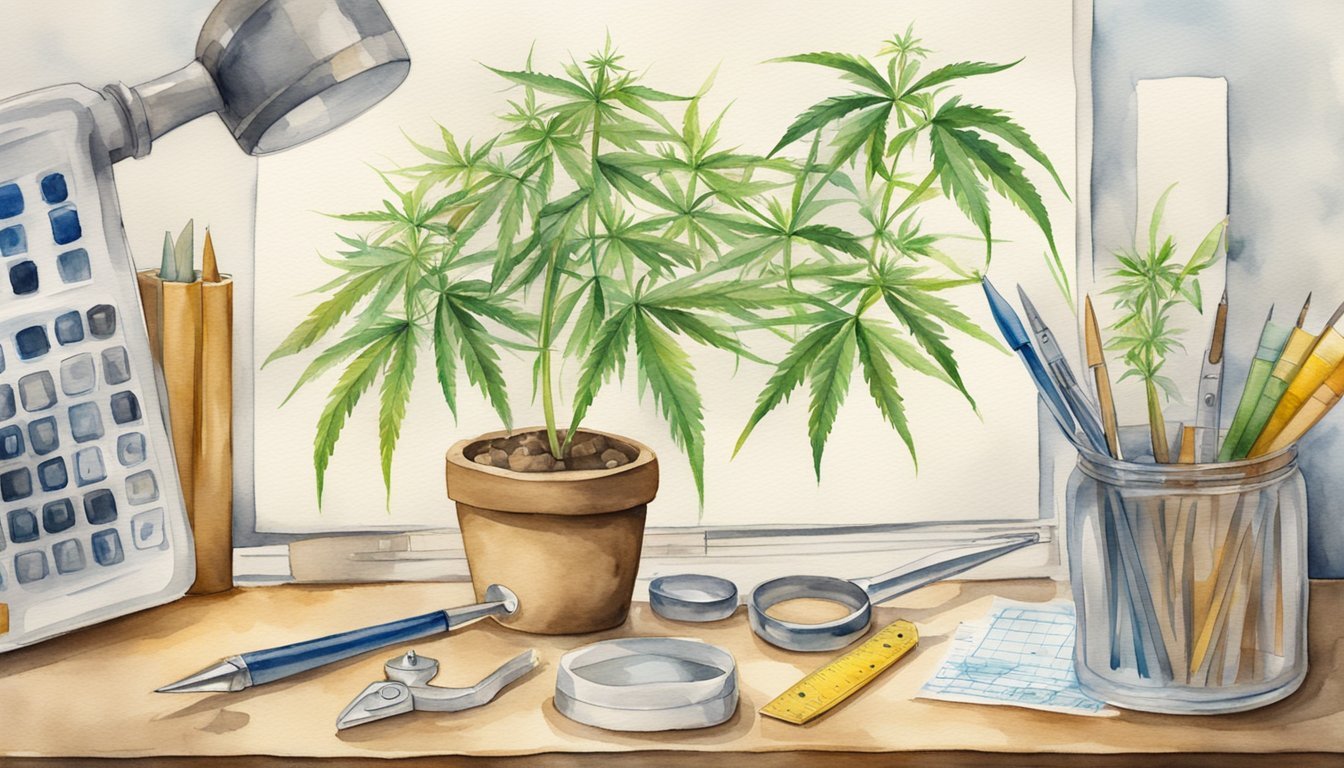Understanding How Weed Interacts with Growth
Cannabis’ influence on growth primarily involves its interaction with the endocannabinoid system and growth hormones, notably during critical developmental stages like adolescence.
Effects of Cannabinoids on Hormones
The endocannabinoid system (ECS) plays a pivotal role in regulating various bodily processes, including hormone production. Cannabinoids, like THC and CBD, interact with this system and can influence the secretion of growth hormones. Chronic cannabis use, especially during adolescence, may disrupt the normal function of the ECS and potentially affect growth hormone levels.
Impact of THC on Developmental Stages
Tetrahydrocannabinol (THC) is the psychoactive component of marijuana that has been shown to affect brain development during adolescence. Teens who engage in regular marijuana use might experience changes in brain structure and function due to THC’s impact on neurons and the developing brain. These changes can have both short-term and long-term implications for cognitive and physical development.
The Role of Marijuana in Puberty Onset
Early onset of puberty has been associated with marijuana use in some studies. The interaction between THC and the ECS could influence the release of hormones responsible for the initiation of puberty. However, the relationship between cannabis consumption and puberty onset can also be affected by genetics and the frequency of use, making definite conclusions challenging.
Comparing Cannabis Use with Other Substances
It’s important to compare the potential growth-related effects of cannabis with other substances. For example, alcohol and tobacco use during formative years have also been linked to adverse health and developmental outcomes. While some research suggests that heavy cannabis use may negatively influence growth hormone production, similar or more severe effects are often found with the use of other substances during this critical period.
For more detailed insights into how cannabinoids influence growth hormones, a useful resource is The Cannigma’s exploration of “Does weed actually stunt growth?”. It is also beneficial to understand the complexities surrounding THC’s impact on development by referring to discussions found on “Unraveling Cannabis Myths”. For a broader understanding of marijuana’s role during puberty, one may consider the arguments presented in “Exploring the Impact”. Lastly, for comparison with other substances, information can be gleaned from The Science Explained at “Can Weed Stunt Your Growth?”.
Studying the Long-Term and Societal Impact of Marijuana Use on Growth

As marijuana use becomes more prevalent, particularly among youths, understanding its potential impact on growth and development remains critical. This includes not only physical growth but also cognitive and emotional maturity into adulthood.
Longitudinal Studies and Adolescent Growth Metrics
Research focusing on adolescents has suggested that long-term marijuana use might correlate with certain negative effects on the endocrine system, which is closely tied to growth and maturation. Longitudinal studies show changes in hormone levels, such as cortisol and sex steroids, which can influence growth spurts and puberty timing. There is particular concern that the psychoactive components of marijuana, such as THC, may disrupt the complex hormonal interplay necessary for growth during adolescence.
Weighing the Therapeutic Benefits Against Growth Concerns
While marijuana has shown therapeutic promise in conditions like epilepsy, its use in young people must be carefully considered against potential growth concerns. The entourage effect of cannabis—where a full spectrum of active compounds may have unique effects—has been shown to offer relief from pain and anxiety, which may inadvertently impact appetite and nutritional intake, factors important for healthy growth. Yet, a systematic review of such benefits must weigh them against any negative implications for hormone regulation and the potential for substance abuse.
Parental Guidance and Preventing Early Cannabis Exposure
Parents play a crucial role in regulating their children’s exposure to substances like marijuana. Given the susceptibility of the developing brain to substance use, early exposure to marijuana can lead to long-term changes in learning, memory, and motivation which, in turn, can have secondary effects on growth and social development. Efforts to delay the onset of cannabis use are key, with parents needing to understand the possible health implications of early marijuana exposure and smoking weed on the growth and development of their children and adolescents.

